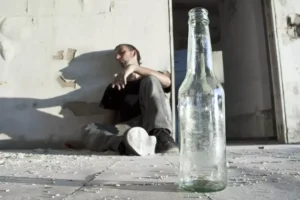
It’s important to be patient and understand that addiction is a disease. People embark on the road to recovery from addiction every day. Only a small proportion of people—from 5 to 10 percent—do it with the help of any type of clinical service or facility. Many people choose to free themselves of addiction through the support of peers, in self-help or mutual support groups.

How to Cope When Someone in Your Household Lives with Addiction

In addition, it’s important to focus on yourself and manage your own stress. Many outpatient family therapy programs are available for you and your loved ones. You meet with a certified therapist who loving an addict teaches you intervention skills you can use at home during stressful and trigger situations. You learn healthy communication skills and ways to express feelings and needs without projecting blame.
There are no easy answers, but there is hope.
- When supporting a partner or family member who is in active addiction to alcohol or other drugs, it’s critically important that you also take care of your well-being.
- While addiction can certainly cause conflict, it can be possible to have a healthy relationship with someone who is willing to take the steps of going through treatment and healing.
- It can lock you into destructive and harmful patterns of behavior.
- Remember the times you’ve helped the addict or alcoholic in your life.
Asking a friend for help in some small aspect of your care is often a comfortable first step. It can lock you into destructive and harmful patterns of behavior. Accepting the partner has a problem and seeking help based on this is one way of acknowledging your needs. Caring for yourself and your needs has been on the back burner for years, and this needs to change.
The essential qualities of addiction and key strategies for recovery.

The worst part isn’t even really the drug use or effect itself – it’s his denial of the effect the addiction has on him, which leads to him raging on me for things I didn’t do or didn’t happen. Any action I take from a place of fear or confusion, or in response to one of his betrayals or lies, gets flipped around on me so I end up the perpetrator. He almost broke up with me because I filed a missing person report on him because I thought he was dead after he disappeared for four days and none of his friends knew where he went. I’ve worked with plenty of addicts, but the words in this post come from loving one. I have someone in my life who has been addicted to various substances. It’s been even more heartbreaking to watch the effect on the people I love who are closer to him than I am.
- In the end, when we can no longer get anything like high practicing our addiction, we may still be driven to engage in it just to feel sane or to avoid the physical and psychological suffering of withdrawal.
- By the time a person is addicted, their behaviors are conditioned, and the brain changes that have occurred make stopping seem like an impossibility.
- So as with other addictions, recognizing the problem is a difficult but essential first step.
- Although more common in romantic relationships, love addiction can occur within families, in friendships, and even with strangers.
- Working with a therapist may also help you reconnect with yourself if you feel out of touch with your own wants and needs.
- My firmness got him to be with me, even though he wanted to write off Christmas, but he did it; even though he slept on and off most of the week to get over the drugs.The thing is, I don’t get anger or denial from him.
- I don’t really even know what my question is at this point, maybe I’m just feeling a need to share my experience.
- I’m knee deep in the woes of loving my addict and feeling so helpless and I needed this energy so much right now.
- Loving an addict is one of the most difficult things that can happen to most people.
- Counseling can also be helpful as you adjust to your loved one’s sobriety.
How to Let Go Of An Addict You Love
Loving an Addict or Alcoholic: How to Help Them and Yourself

